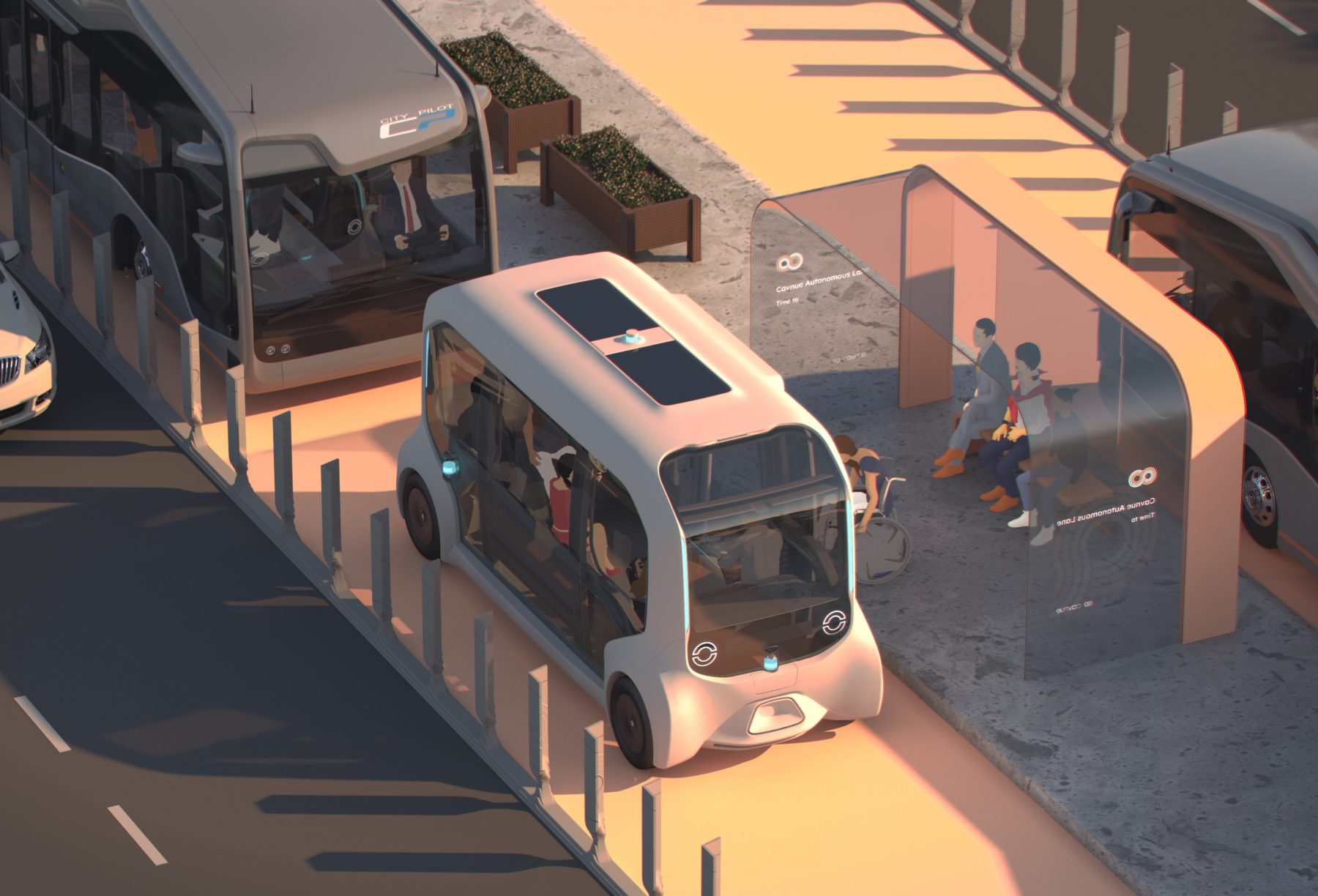U-M, Mcity join State of Michigan initiative to design ‘road of the future’ connecting Detroit and Ann Arbor

DETROIT—The University of Michigan is a partner in a major mobility initiative Gov. Gretchen Whitmer announced today to develop a first-of-its-kind corridor for connected and autonomous vehicles.
The corridor is designed to improve transportation for communities in Southeast Michigan and continue the state’s leadership in smart infrastructure and future mobility.
Cavnue, a subsidiary of Sidewalk Infrastructure Partners (SIP), has been selected to serve as master developer for phase one of the corridor project.
This public-private partnership will explore the opportunity and viability of the project working with state and local partners, stakeholders and communities across the corridor from Detroit to Ann Arbor. This process will include a robust outreach effort to design the corridor with local communities. It will focus on equitably improving mobility across the corridor and closing long-standing gaps in access to transit and transportation.
“This connected and automated vehicle corridor will be so much more than a road. It will serve as a pathway to sustainability, to safer mobility, and to prosperity for underserved populations and for the state of Michigan as a whole.”
Alec G. Gallimore, Robert J. Vlasic Dean of Engineering, University of Michigan
Initial project partners include Ford Motor Co.; U-M, home to the Mcity Test Facility, U-M Transportation Research Institute, the Center for Connected and Automated Transportation and facilities along the proposed corridor; and the American Center for Mobility, a world-class testing facility in Ypsilanti.
“This connected and automated vehicle corridor will be so much more than a road. It will serve as a pathway to sustainability, to safer mobility, and to prosperity for underserved populations and for the state of Michigan as a whole. The effort brings together broad expertise—in technology, infrastructure, policy, community engagement and more, and that’s exactly what it takes to solve complex societal problems. We are proud to be part of it,” said Alec D. Gallimore, the Robert J. Vlasic Dean of Engineering, the Richard F. and Eleanor A. Towner Professor, an Arthur F. Thurnau Professor, and a professor of aerospace engineering.
The first phase of the project is a feasibility assessment to test technology and explore the viability of a 40+-mile driverless vehicle corridor featuring lanes that support transit and shared mobility options in addition to private vehicles between Downtown Detroit and Ann Arbor.
Cavnue, a company founded by SIP to build the future of roads, will work with MDOT, Michigan’s Office of Future Mobility and Electrification, and Michigan’s Department of Labor and Economic Opportunity along with project partners throughout phase one of the effort, expected to last approximately two years.
“As we take the first steps toward enabling the world’s first corridor-level infrastructure that will support deployment of connected and autonomous vehicles, we have an opportunity, and a responsibility, to advance our state’s technology and the automotive landscape in a way that also improves the quality of life for countless individuals in Michigan,” Whitmer said.
“As we get to work to fix our roads today, we are also making sure we are building smart infrastructure to be ready for the roads of tomorrow and to secure Michigan’s position as the state leading this next revolution in transportation.”
Learn more about the CAV corridor from the Cavnue website
Other U-M units are engaged in the corridor project in addition to Mcity, including the U-M Transportation Research Institute and the Center for Connected and Automated Transportation. In this video, UMTRI Director Jim Sayer talk about the benefits of the corridor.